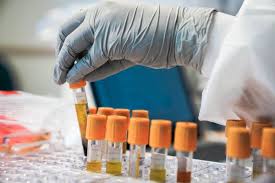Sexually transmitted infections (STIs) are an important topic in sexual health, yet they’re often misunderstood or surrounded by stigma. Whether you’re navigating new relationships or simply want to be informed, understanding the basics of STIs can help you make confident and knowledgeable decisions about your health. This article will explore key information about STIs, from prevention to testing, to ensure you feel supported and informed.
STIs
STIs are infections that impact sexual health and spread from one person to another through sexual contact. They can be caused by bacteria, viruses, or parasites. Common examples of STIs include chlamydia, gonorrhea, human papillomavirus (HPV), and herpes. These infections may affect anyone, regardless of age, gender, or relationship status.
Some STIs display symptoms such as unusual discharge, burning during urination, or sores, while others may show no symptoms at all. This means that someone can have an STI and not even know it, which is why awareness and regular testing are so pivotal. Early detection is key to managing STIs effectively.
Preventing STIs
While no prevention method is 100% foolproof, there are steps you can take to reduce your risk of contracting an STI. Here are some key preventive measures:
- Use Barrier Methods: Condoms and dental dams are effective at reducing the spread of many STIs. Use them consistently and correctly.
- Get Vaccinated: Vaccines are available for certain STIs, such as HPV. Talk to a healthcare provider to learn if vaccination is right for you.
- Have Open Conversations: Communicate with partners about sexual health, STI testing, and protection methods.
- Limit Sexual Partners: Reducing the number of sexual partners can lower your risk of exposure.
These proactive steps can help you protect your health and build a strong foundation for safe and responsible intimacy.
STI Testing
Regular STI testing is a pivotal part of maintaining your sexual health. Testing allows you to detect infections early, even if you don’t have symptoms. Most clinics and healthcare providers offer a variety of testing options tailored to your needs.
Getting tested is a simple process. A healthcare professional may ask about your sexual history to recommend which tests are necessary. This could involve a urine sample, a blood test, or even a swab test. Don’t hesitate to ask questions or express concerns during your visit; healthcare providers are there to guide and support you. Make testing a routine part of your health check-ups, especially if you have multiple partners or start a new relationship.
Why Education and Awareness Matter
Education and open dialogue about STIs play a role in overcoming stigma and helping with better health outcomes. Stigma surrounding STIs sometimes prevents people from seeking help or sharing their experiences, but knowledge is a powerful tool for breaking these barriers. Many organizations and resources are available to help. Local clinics, community centers, and online platforms often provide free or low-cost materials, webinars, and support groups aimed at raising awareness. Taking advantage of these resources benefits not just you but the broader community as well.
Take Charge of Your Sexual Health
Understanding and addressing STIs is a vital step in maintaining your overall well-being. By educating yourself, using preventive measures, and prioritizing testing, you can build confidence in your sexual health decisions. If you have questions or need guidance, don’t hesitate to reach out to a healthcare provider or local clinic. Taking proactive steps today makes a difference for tomorrow.

Leave a Reply